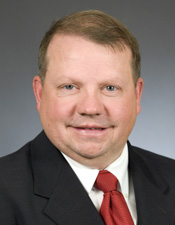Millions in funding proposed to help workforce boards meet employment challenges
Workforce shortages and the challenges racial inequalities pose to the state economy have been exacerbated by the COVID-19 pandemic.
Supporters of HF4134 believe Minnesota workforce development boards can create solutions tailored to local communities that will allow as strong a recovery as possible.
Rep. Ron Kresha (R-Little Falls) sponsors the bill, which calls for a onetime $20 million General Fund appropriation in fiscal year 2023 for the state’s 16 workforce boards, “for strategies identified in local Workforce Innovation and Opportunity Act plans to address Minnesota's current workforce shortages.”
As amended, the bill was laid over Wednesday by the House Workforce and Business Development Finance and Policy Committee for possible omnibus bill inclusion.
Local workforce boards write local plans to address critical workforce needs, said Scott Schulte, chair of the Minnesota Association of Workforce Boards.
However, he said federal funding has decreased by 20% over last decade when adjusted for inflation. That has impacted the boards’ abilities to address current challenges.
Moreover, Schulte said, greater focus on unemployment insurance by the Department of Employment and Economic Development has forced local boards to pivot to fill job training and recruitment gaps on the local level.
Employers need help training, recruiting and retaining talent, Schulte said. Job seekers need help preparing for high-paying jobs. “Workforce boards want to be able to meet the moment.”
Association Director Jeanna Fortney said current funding tied to federal and state requirements doesn’t offer much flexibility for innovative strategies, including outreach and marketing.
Additional funding would also help ensure workforce boards have staffing and infrastructure needed to keep the more than 50 CareerForce locations open. Centers in areas without great access to broadband are especially critical, offering job seekers a place to search for jobs, write resumes and get staff assistance on computers.
“Serving people in person is important,” Fortney said. “Data shows people need people and our intensive in-person connections with job seekers leads to the success we have as a system.”
The bill’s companion, SF4160, is sponsored by Sen. Jeff Howe (R-Rockville) and awaits action by the Senate Jobs and Economic Growth Finance and Policy Committee.
Related Articles
Search Session Daily
Advanced Search OptionsPriority Dailies
Legislative leaders set 2026 committee deadlines
By Lisa Kaczke Legislative leaders on Tuesday officially set the timeline for getting bills through the committee process during the upcoming 2026 session.
Here are the three deadlines for...
Legislative leaders on Tuesday officially set the timeline for getting bills through the committee process during the upcoming 2026 session.
Here are the three deadlines for...
Latest budget forecast projects nearly $2.5 billion surplus, but red ink down the road
By Mike Cook Three weeks before Christmas, state budget officials provided some merriment to Minnesotans. However, Grinch-like transformations lurk.
Released Thursday, the November ...
Three weeks before Christmas, state budget officials provided some merriment to Minnesotans. However, Grinch-like transformations lurk.
Released Thursday, the November ...
